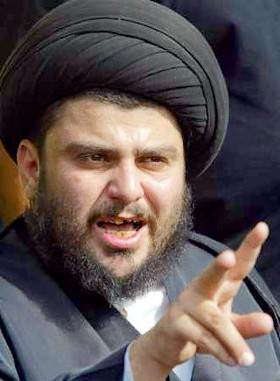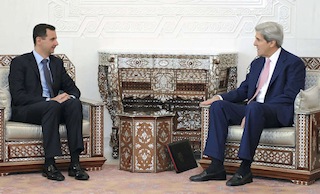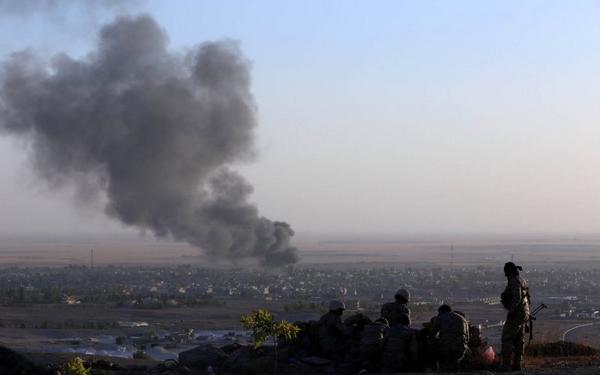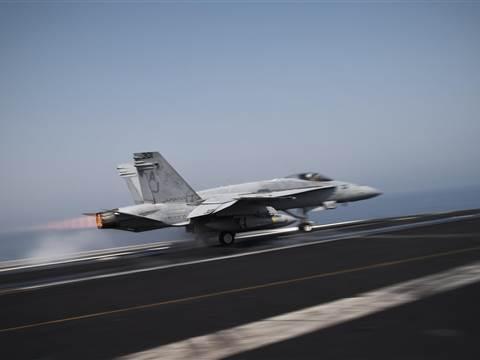Moon of Alabama....
http://www.zerohedge.com/news/2014-09-15/middle-east-mosaic-friends-foes-frenemies
( It's complicated.... )
****
Anti War.....
 Centcom described the strike as part of an attempt to “degrade and ultimately destroy” ISIS, and confirmed attacks on vehicles near Sinjarin the nation’s northwest as well.
Centcom described the strike as part of an attempt to “degrade and ultimately destroy” ISIS, and confirmed attacks on vehicles near Sinjarin the nation’s northwest as well.
 It’s coming at the expense of would-be partners that are already fighting ISIS. The US spurned Iran’s coordination offer, only to later claim they were “open” to talks, leading Iran to insist they weren’t going to back the US operation, even though they’re already on the ground in Iraq, fighting ISIS.
It’s coming at the expense of would-be partners that are already fighting ISIS. The US spurned Iran’s coordination offer, only to later claim they were “open” to talks, leading Iran to insist they weren’t going to back the US operation, even though they’re already on the ground in Iraq, fighting ISIS.
 Sadr was an outspoken opponent of the US occupation, and his Mahdi Army often clashed with the US forces in the nation. He is also the leader of the politically powerful Sadrist Trend in Iraq.
Sadr was an outspoken opponent of the US occupation, and his Mahdi Army often clashed with the US forces in the nation. He is also the leader of the politically powerful Sadrist Trend in Iraq.
 Syrian media reports continued provision of targeting intelligence to the Assad government, primarily centered on where the US believes the ISIS leadership to be located at any given time.
Syrian media reports continued provision of targeting intelligence to the Assad government, primarily centered on where the US believes the ISIS leadership to be located at any given time.
Tweets of the day....
September 15, 2014
The New "Regime Change" Plan - Attack Damascus From The South
There are serious active preparations for a new attack on Damascus. Anti-government forces, including the Al-Qaeda affiliate Jabhat al-Nusra, have been trained and equipped in Jordan and are now moving into their starting position in Quneitra governate in south-west Syria. (A similar plan in spring 2013 was only partially executed and later aborted,)
Quneitra governate is a strip next to the Israel occupied Golan heights with a southern border to Jordan and a north western border with Lebanon.
The anti-government forces cooperating for this operation are the Syrian Revolutionaries Front (SRF), which is backed by the United States, assisted by the Islamic Front, backed by Saudi Arabia, and al-Qaeda's Jabhat al-Nusrah which just received some $20 million from Qatar. These forces infiltrated from Jordan through Daara and then up north-westward along the border with Israel. This movement, during which some UN observers were kidnapped by these forces, was supported by Israeli artillery strikes against Syrian units that tried to prevent it. The sole border station between Israel and Syria is now in the hands of the anti-government forces. The Israeli military is also providing medical support to these anti-government forces. The UN has pulled out all peacekeepers from the Syrian side of the Golan height demarcation line.
The anti-government forces now control a 40 miles (70km) long, three miles (5km) wide strip from Jordan along the Golan frontier up to Lebanon. This strip can be used to infiltrate into Hizbullah territory in south Lebanon but its main purpose is likely an attack on Damascus from the south. The Syrian military would have great difficulties to dislodge the anti-government forces from this strip as it is covered by Israeli anti-air and artillery fire.
There are rumors that Jabhat al-Nusra is leaving positions it has been holding in Hama governate in north Syria. It's groups are pulling back into Turkey to be transferred to Jordan and then as reinforcements into Quneitra.
The rather empty Quneitra area makes little sense to conquer except to be used as a launching pad for an attack from the south towards Damascus. The distance to the capital is only some 40 miles (60km). While two Syrian army divisions are stationed between Quneitra governate and Damascus coordinated air attacks against them could open and secure a route from Quneitra governate into the capital. Recent truceagreements between the U.S. supported Syrian Revolutionary Front and ISIS in the area south of Damascus may have been concluded with these attack plans in mind.
The U.S. military in the joint Arab-American operations room for the Syrian insurgency in Amman Jordan may well plan to use the murky new "war on ISIS" as pretext for attacks on the Syrian army divisions protecting Damascus from the south. Coordinated with a ground attack by Jabhat al-Nusra and others from Quneitra such air attacks would seriously degrade the Syrian forces and enable a destructive push into Damascus.
(update) Obama already announced the escalation path for such air attacks:
He made clear the intricacy of the situation, though, as he contemplated the possibility that Mr. Assad might order his forces to fire at American planes entering Syrian airspace. If he dared to do that, Mr. Obama said he would order American forces to wipe out Syria’s air defense system, which he noted would be easier than striking ISIS because its locations are better known. He went on to say that such an action by Mr. Assad would lead to his overthrow, according to one account.
The stampede to attack ISIS may have been pure maskirovka to hide this violent regime change attack plan against Syria under some "anti-terrorism" label. This at the same time as the plan is coordinated with and actively supported by Jabhat al-Nusra, al-Qaeda's affiliate in Syria, and made possible through truce agreements with ISIS.
http://www.zerohedge.com/news/2014-09-15/middle-east-mosaic-friends-foes-frenemies
( It's complicated.... )
The rise of Islamic State has upended geopolitics in the Middle East and, as The Economist notes, drawn America's military back to the region. Though ISIS is popular among militants, the group has no allies on the political stage, making it even more isolated than the official al-Qaeda affiliate, Jabhat al-Nusra. As The Economist's "relationship mosaic" above visualizes the rapports among countries, political groups and militant organizations in the Middle East.
****
Anti War.....
US Eyes New Phase of ISIS War With Strikes Near Baghdad
Strikes Carried Out Southwest of Iraqi Capital
by Jason Ditz, September 15, 2014
US warplanes expanded the range of their airstrikes in Iraq once again today, targeting ISIS southwest of Baghdad in what officials are saying is part of a “new phase” of more aggressive strikes on them.
 Centcom described the strike as part of an attempt to “degrade and ultimately destroy” ISIS, and confirmed attacks on vehicles near Sinjarin the nation’s northwest as well.
Centcom described the strike as part of an attempt to “degrade and ultimately destroy” ISIS, and confirmed attacks on vehicles near Sinjarin the nation’s northwest as well.
Since President Obama’s Wednesday speech, announcing a planned expansion of the war into Syria, there have been multiple predictions of an escalation of the war in Iraq as well, which seem to be panning out.
Yet Centcom insisted only that the attacks are an expansion “beyond protecting our own people and humanitarian missions,” which isn’t true, since several past US airstrikes in Anbar and Nineveh Provinces were launched primarily to help Kurdish and Iraqi troops on the ground as well.
Officials have suggested the first attacks inside Syria may not come for weeks, but that more escalations inside Iraq can be expected in the coming days.
In Coalition-Building, US Excludes Some to Court Others
Active Anti-ISIS Groups Being Sidelined to Avoid Offending GCC, Turkey
by Jason Ditz, September 15, 2014
The Obama Administration’s determination to build a huge coalition of “anti-ISIS” nations has centered on quantity as opposed to quality, with a focus on getting large numbers of nations that have no intention of doing anything to sign off on the plan.
 It’s coming at the expense of would-be partners that are already fighting ISIS. The US spurned Iran’s coordination offer, only to later claim they were “open” to talks, leading Iran to insist they weren’t going to back the US operation, even though they’re already on the ground in Iraq, fighting ISIS.
It’s coming at the expense of would-be partners that are already fighting ISIS. The US spurned Iran’s coordination offer, only to later claim they were “open” to talks, leading Iran to insist they weren’t going to back the US operation, even though they’re already on the ground in Iraq, fighting ISIS.
The US was clear in not wanting Iran anywhere near this week’s Paris summit, despite Iraq wanting them there, and it was chiefly because the Gulf nations, including Saudi Arabia, would’ve likely pulled out rather than be seen as in league with Iran.
And as the US looks to find anti-ISIS factions inside Syria to arm, they’ve similarly spurned the Syrian military as too unfriendly to the Saudis, and are also excluding the Kurdish YPG and PKK factions, which are in direct conflict with ISIS, on the grounds that it would alienate Turkey.
The Saudis have suggested they might be involved in the air war against ISIS, thoughIraq says they aren’t welcome. Turkey joined the coalition but has ruled out playing any role in military operations against ISIS at all.
Ultimately, the US seems resigned to fighting the war more or less by itself, and the large coalition is more an attempt to placate a war weary American public that the world is “united” on the conflict, even if that unity doesn’t add up to anything on the ground but another open-ended US war.
Iraqi Shi’ite Cleric Sadr Warns US Soldiers Could Be Targeted if They Return
'If You Come Back, We Will Be Back Too'
by Jason Ditz, September 15, 2014
Influential Iraqi Shi’ite cleric Moqtada al-Sadr has ordered members of his Mahdi Army militia to withdraw from areas where US forces are conducting their ir war against ISIS, and urged popular demonstrations against the return of US ground troops to the country.
 Sadr was an outspoken opponent of the US occupation, and his Mahdi Army often clashed with the US forces in the nation. He is also the leader of the politically powerful Sadrist Trend in Iraq.
Sadr was an outspoken opponent of the US occupation, and his Mahdi Army often clashed with the US forces in the nation. He is also the leader of the politically powerful Sadrist Trend in Iraq.
Failing the threat of unrest keeping US troops off Iraqi soil, Sadr warned that they could find themselves once again a target of his allied militias, declaring “if you come back, we will be back too.”
The Mahdi Army largely disbanded afterthe US pullout, but Sadr has kept ties with its leadership, threatening regularly to bring them out of retirement if the US tries to return to the country in a military role. With the ISIS war looking to do exactly that, they could quickly be another foe for the US in its ever-expanding conflict.
Report: US Provides ISIS Intelligence to Syria
Ruling Out Coordination, US Still Funneling Info to Assad
by Jason Ditz, September 15, 2014
The Obama Administration has made much of its unwillingness to coordinate its planned attacks on ISIS in Syria with the Syrian government. That does not appear to extend, however, to intelligence sharing.
 Syrian media reports continued provision of targeting intelligence to the Assad government, primarily centered on where the US believes the ISIS leadership to be located at any given time.
Syrian media reports continued provision of targeting intelligence to the Assad government, primarily centered on where the US believes the ISIS leadership to be located at any given time.
The reports are similar to those coming out of Germany last month, which confirmed that Germany’s BND is being used as an intermediary for the intelligence sharing, since the US doesn’t have any formal contact with Assad.
The administration doesn’t want to be seen as cooperating with Syria against ISIS, even though they are, and has been publicly threatening Assad not to interfere with its planned attacks on ISIS, though it seems like privately, the coordination is far broader than they will admit.
Tweets of the day....
Airstrikes against ISIS are not a "strategy" – they're a tactic. And they won't get us far http://thebea.st/1qDvT0M pic.twitter.com/ejN6uUacI1
Retweeted by Joel Wing
BREAKING: U.S. launches first offensive airstrikes against ISIS near Baghdad http://nbcnews.to/1qXwPuv
Turkish military weighs "buffer zone" against threat from Iraq, Syria: media http://bit.ly/1uBnWt4
Are military contractors heading back to Iraq? http://almon.co/27i6
#Syria MAP UPDATE > the military situation in Syria as of 15 SEPTEMBER 2014 >
https://pietervanostaeyen.files.wordpress.com/2014/09/2000px-syria7.png … @arabthomness
#Turkey is finding it difficult to define its position in the fight between its NATO allies and #IS - @CengizCandar http://almon.co/27d0
Conscription Bill to be proposed to #Iraqi Parliament - #BasNews - http://www.basnews.com/en/News/Details/Conscription-Bill-to-be-proposed-to-Iraqi-Parliament/34133 …
#Iraqi President: Iran Should be Present at #Paris Conference - #BasNews - http://www.basnews.com/en/News/Details/Iraqi-President--Iran-Should-be-Present-at-Paris-Conference/34128 …
BREAKING: #Washington: We do not and will not cooperate with #Iran militarily
#Syrian forces bombing #Waer "to force civilians and rebels to agree to the regime's truce conditions," Homs Media Center activist tells us.
#Islamist party in #Kurdistan to meet for important changes, including stance over #IS. http://fb.me/1ybk2p4fb
Sec-General of #Nato "Appeasement does not lead to peace. It just incites tyrants" speaking at @Carnegie_Europe #AskAnders
The Kurdish delegation at the International conference in Paris revealed to #Rudaw that the role of #Peshmerga... http://fb.me/1GC8rWA58
Hollande calls for #Lebanese Army support http://bit.ly/1qYtmNQ












No comments:
Post a Comment